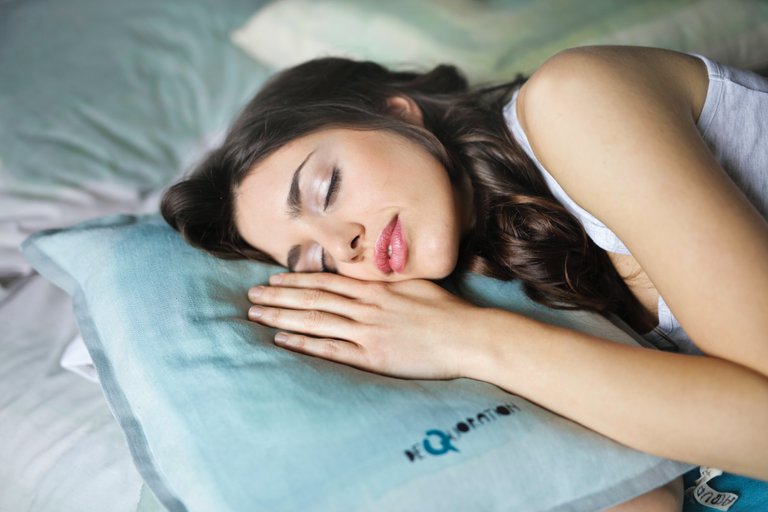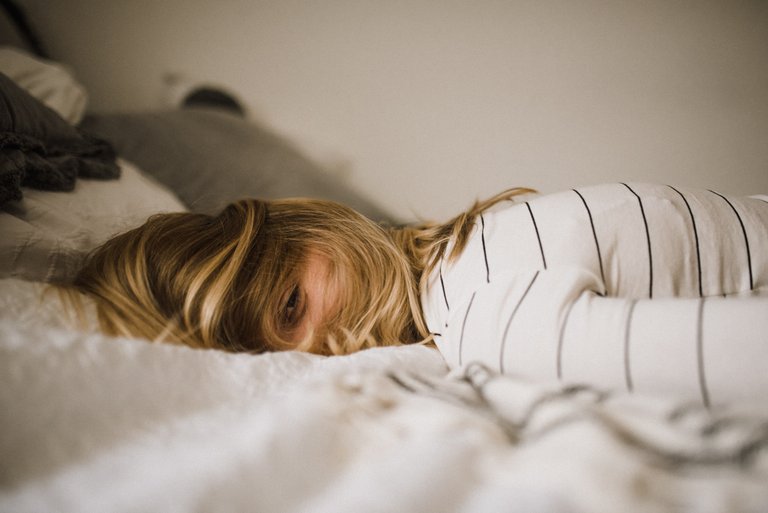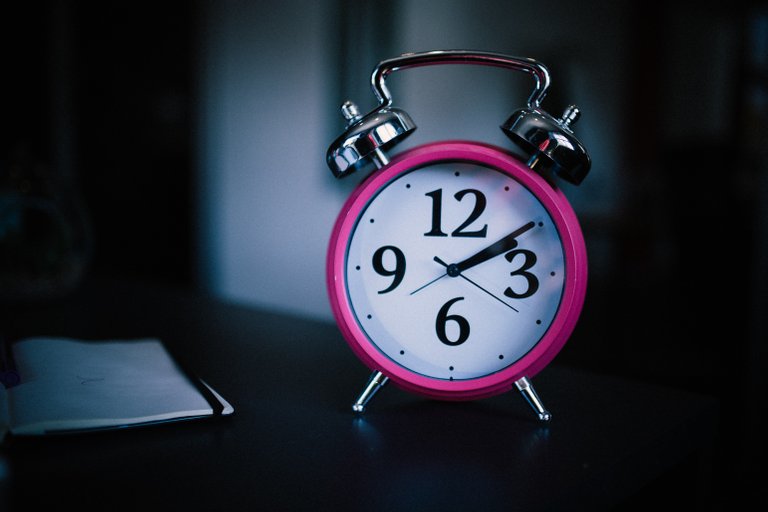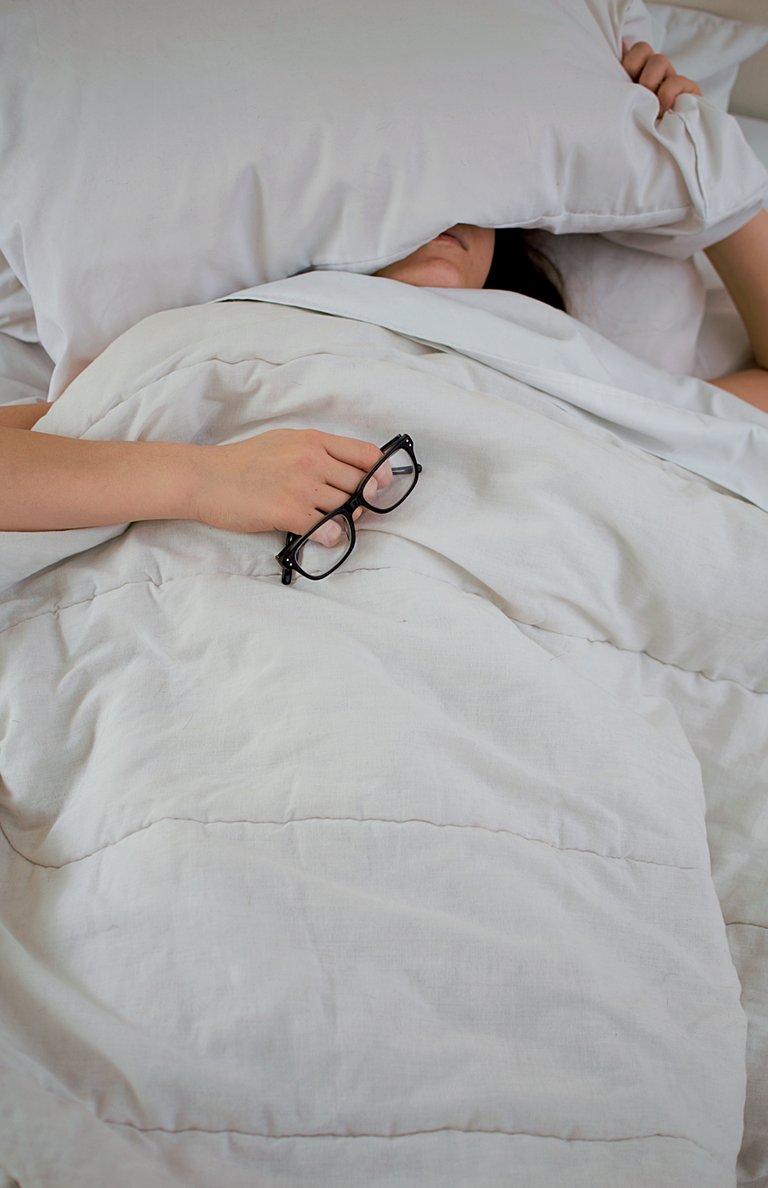...El sueño....

Español
Hola amigos de #Hive….hace días estaba por escribirles algo sobre un tema que desde hace ha creado polémica en mi familia…..El sueño…😴😴😴 Desde que comencé mis estudios de preuniversitario mis horarios de sueño cambiaron drásticamente, no dormía lo suficiente en la escuela y al llegar al cabo de casi 15 días a mi casa…solo pensaba en dormir. Pensé que al terminar esa enseñanza mi vida de sueño mejoraría, para nada……escogí una de las profesiiones donde menos se duerme….la medicina ….. Fueron años agotadores que nunca mejoraron, cada año se complicaban más🥵🥵🥵🥵, comienzan las guardias, las especialidades, los postgrados …y para que contarles….nunca acaba y mi sueño tampoco 🤭🤭🤭 por eso para mí…no hay descanso sino logro cumplir mis horarios de sueño….razón por la cual se burlan de mí en mi entorno familiar ….dicen que duermo mucho😜😜😜😜.
Por eso hoy quiero comentarles sobre la importancia del mismo, espero que les guste y sobre todo que lo pongan en práctica.😉😉
¿Qué es el sueño?
°°°°°°°°°°°°°°°°°°°°°°°°°°°°°°°°°°°°°°°°°°°°°°°°°°°°°°°°°°°°°
El sueño es un período fisiológico de reposo que permite al cuerpo y a la mente descansar y restablecerse.
El sueño no es sólo un bloque de tiempo en el que usted no está despierto. El cerebro se mantiene activo durante el sueño. Sin embargo, suceden diferentes cosas durante cada etapa. Por ejemplo, ciertas etapas son necesarias para ayudarle a sentirse descansado y con energía al día siguiente, y otras etapas lo ayudan a aprender y crear recuerdos.
Varias actividades vitales que ocurren durante el sueño ayudan a mantener un buen estado de salud y permiten que el cuerpo funcione de manera óptima. Por otro lado, no dormir lo suficiente puede ser peligroso para su salud mental y física.
¿Cuántas horas debemos dormir?
°°°°°°°°°°°°°°°°°°°°°°°°°°°°°°°°°°°°°°°°°°°°°°°°°°°°°°°°°°°°°
La cantidad de horas de sueño necesarias varía según la persona y cambia a lo largo del ciclo de vida. La mayoría de los adultos, incluyendo los de edad avanzada, necesitan entre 7 y 8 horas de sueño cada noche. Los niños tienen diferentes necesidades de sueño según la edad.
Bebés de 4 a 12m --------- 12 a 16 h/cada 24h, incluidas las siestas
De 1 a 2 años --------- 11 a 14 h/cada 24h, incluidas las siestas
De 3 a 5 años ---------- 10 a 13 h/cada 24h, incluidas las siestas
De 6 a 12 años ----------- 9 a 12 horas por cada 24 h
De 13 a 18 años ------------ 8 a 10 horas
Adultos ------------ 7 horas por noche.
Las necesidades de sueño son individuales, se basan en varios factores; la genética, el estado de salud, el entorno del sueño, el sueño de la noche anterior y el sexo influyen en la necesidad o la cantidad de sueño que se necesita a una edad determinada.
La genética individual:los genes influyen tanto en los ritmos circadianos como en el impulso interno del sueño, los 2 principales sistemas biológicos del sueño.
El nivel de actividad:el sueño es una forma de energía para el cuerpo, y la mente, y un tiempo para que el cuerpo se recupere del desgaste. Cuanto más activo seas, más sueño necesitarás.
La salud:cuando nos enfrentamos a problemas de salud, a menudo necesitamos más descanso. Esto es cierto tanto para las enfermedades de corta duración, como los resfriados y la gripe, como para las enfermedades crónicas o de larga duración, desde la artritis hasta el cáncer.
El ambiente: confort a la hora de dormir.
Los cambios vitales: el estrés y los períodos de cambio o agitación pueden aumentar temporalmente la necesidad de dormir o el insomnio. Si el estrés es crónico, puede crear una deuda de sueño crónica.
¿Por qué dormir es saludable?
°°°°°°°°°°°°°°°°°°°°°°°°°°°°°°°°°°°°°°°°°°°°°°°°°°°°
No solo importa la cantidad de horas que usted duerme, sino también la calidad del sueño. La calidad del descanso y la manera en que su cuerpo funciona al día siguiente dependen del total de horas que duerme y de la duración de las distintas etapas de sueño que usted tiene cada noche.
Necesitamos dormir para pensar con claridad, reaccionar con rapidez y crear recuerdos. De hecho, las rutas del cerebro que nos ayudan a aprender y recordar están muy activas mientras dormimos. Reducir tan solo 1 hora de sueño puede hacer que sea difícil concentrarse al día siguiente y que su tiempo de respuesta sea más lento, debido a la falta de sueño, hay más probabilidades de que usted tome decisiones incorrectas y asuma riesgos innecesarios. Esto puede resultar en un rendimiento deficiente en el trabajo o la escuela, y un mayor riesgo de sufrir accidentes automovilísticos.
La falta de sueño puede provocar irritabilidad y esto afectará el comportamiento y las dificultades en las relaciones, especialmente en los niños y adolescentes.
No dormir lo suficiente o tener una mala calidad de sueño de manera constante aumenta el riesgo de tener presión arterial alta, enfermedad cardíaca y otras condiciones médicas. Además, durante el sueño, su cuerpo produce hormonas valiosas. Estas hormonas contribuyen al crecimiento de los niños y ayudan a los adultos y a los niños a aumentar la masa muscular, combatir infecciones y reparar células. Las hormonas que se liberan durante el sueño también afectan la manera en que el cuerpo utiliza la energía, mientras menos duerme una persona, mayor es la probabilidad de que aumente de peso o sufra obesidad, desarrolle diabetes y prefiera comer alimentos con alto contenido de calorías y carbohidratos.
¿Cómo logro dormir bien?
°°°°°°°°°°°°°°°°°°°°°°°°°°°°°°°°°°°°°°°°°°°°°°°°°°°°°°°°°°°°°
Al igual que comer bien y mantenerse físicamente activo, dormir lo suficiente por las noches es vital para su bienestar
• Ajústese a un horario de sueño: acuéstese y levántese a la misma hora cada día.
• Evite la cafeína y la nicotina.
• No haga ejercicio muy tarde durante el día.
• Evite las bebidas alcohólicas antes de acostarse.
• Evite comidas y bebidas abundantes a altas horas de la noche.
• No duerma una siesta después de las 3:00 p.m.
• Relájese antes de acostarse; por ejemplo, tome un baño caliente.
• Cree un ambiente apropiado para dormir. Deshágase de las distracciones que tenga en la habitación: ruidos, luces brillantes, una cama incómoda, un televisor o una computadora.
• Visite a su médico si continúa teniendo problemas para dormir.
¿Qué daños me causará no dormir lo suficiente?
°°°°°°°°°°°°°°°°°°°°°°°°°°°°°°°°°°°°°°°°°°°°°°°°°°°°°°°°°°°°°
1-Dormir poco reduce la esperanza de vida
2-Dormir mal de forma crónica debilita el sistema inmunitario
3-Reduce la memoria y la capacidad de atención
4-Aumenta las probabilidades de padecer accidentes y afecciones crónicas como la Depresión, Diabetes Tipo 2 y Enfermedades Cardiacas.
Dormir menos de 6 horas aumenta el riesgo de demencia senil en personas mayores de 50 años.
Espero que les haya gustado☺️
Saludos
😀😀😀😀😀😀😀😀
English
Hello friends of #Hive…. a few days ago I was about to write you something about a topic that has been controversial in my family for a long time…..Sleep…😴😴😴 Since I started my pre-university studies, my sleep schedules changed drastically, I didn't sleep enough at school and when I got home after almost 15 days…I only thought about sleeping. I thought that when I finished that teaching my dream life would improve, not at all… I chose one of the professions where you sleep the least… medicine….. They were exhausting years that never got better, every year they got more complicated , they start the shifts, the specialties, the postgraduate courses…and why tell them….it never ends and neither does my dream 🤭🤭🤭 that's why for me…there is no rest if I don't manage to fulfill my sleep schedules….which is why they make fun of me in my family environment….they say I sleep a lot😜😜😜😜.
That's why today I want to tell you about the importance of it, I hope you like it and above all that you put it into practice.😉😉
What is sleep?
°°°°°°°°°°°°°°°°°°°°°°°°°°°°°°°°°°°°°°°°°°°°°°°°°°°°°°°°°°°°°
Sleep is a physiological period of rest that allows the body and mind to rest and reset.
Sleep is not just a block of time when you are not awake. The brain is active during sleep. However, different things happen during each stage. For example, certain stages are necessary to help you feel rested and energized the next day, and other stages help you learn and make memories.
Various vital activities that occur during sleep help maintain good health and allow the body to function optimally. On the other hand, not getting enough sleep can be dangerous for your mental and physical health.
How many hours should we sleep?
°°°°°°°°°°°°°°°°°°°°°°°°°°°°°°°°°°°°°°°°°°°°°°°°°°°°°°°°°°°°
The amount of sleep needed varies from person to person and changes throughout the life cycle. Most adults, including the elderly, need between 7 and 8 hours of sleep each night. Children have different sleep needs depending on their age.
Babies from 4 to 12m --------- 12 to 16h/every 24h, including naps
From 1 to 2 years --------- 11 a.m. to 2 p.m./every 24h, including naps
From 3 to 5 years old ---------- 10 a.m. to 1 p.m. / every 24 hours, including naps
From 6 to 12 years old ----------- 9 to 12 hours every 24 hours
From 13 to 18 years old ------------ 8 to 10 hours
Adults ------------ 7 hours per night.
Sleep needs are individual, based on various factors; Genetics, health status, sleep environment, last night's sleep, and gender influence the need or amount of sleep needed at a given age.
Individual Genetics:Genes influence both circadian rhythms and internal sleep drive, the 2 main biological sleep systems.
Activity level:Sleep is a form of energy for the body, and the mind, and a time for the body to recover from wear and tear. The more active you are, the more sleep you need.
Health:When we are faced with health problems, we often need more rest. This is true for both short-term illnesses, such as colds and flu, and long-term or chronic illnesses, from arthritis to cancer.
The atmosphere: comfort at bedtime.
Life Changes: Stress and periods of change or upheaval can temporarily increase the need for sleep or insomnia. If the stress is chronic, it can create chronic sleep debt.
Why sleep is healthy?
°°°°°°°°°°°°°°°°°°°°°°°°°°°°°°°°°°°°°°°°°°°°°°°°°°°°°
Not only the number of hours you sleep matters, but also the quality of sleep. The quality of rest and the way your body functions the next day depend on the total number of hours you sleep and the duration of the different stages of sleep that you have each night.
We need sleep to think clearly, react quickly, and create memories. In fact, the pathways in the brain that help us learn and remember are very active while we sleep. Reducing even 1 hour of sleep can make it difficult to concentrate the next day and slow your response time, due to lack of sleep, you are more likely to make the wrong decisions and take unnecessary risks. This can result in poor performance at work or school, and an increased risk of car accidents.
Lack of sleep can lead to irritability and this will affect behavior and relationship difficulties, especially in children and adolescents.
Not getting enough sleep or consistently getting poor quality sleep increases your risk of high blood pressure, heart disease, and other medical conditions. Also, during sleep, your body produces valuable hormones. These hormones contribute to the growth of children and help adults and children to increase muscle mass, fight infections and repair cells. Hormones released during sleep also affect how the body uses energy – the less a person sleeps, the more likely they are to gain weight or become obese, develop diabetes, and prefer to eat high-calorie foods and carbohydrates.
How do I get a good night's sleep?
°°°°°°°°°°°°°°°°°°°°°°°°°°°°°°°°°°°°°°°°°°°°°°°°°°°°°°°°°°°°°
Just like eating right and staying physically active, getting enough sleep at night is vital to your well-being
• Stick to a sleep schedule: go to bed and wake up at the same time each day.
• Avoid caffeine and nicotine.
• Don't exercise too late in the day.
• Avoid alcoholic beverages before bed.
• Avoid large meals and drinks late at night.
• Do not take a nap after 3:00 p.m.
• Relax before bed; for example, take a hot bath.
• Create an appropriate environment for sleeping. Get rid of distractions in the room: noises, bright lights, an uncomfortable bed, a TV, or a computer.
• See your doctor if you continue to have trouble sleeping.
What harm will not getting enough sleep cause me?
°°°°°°°°°°°°°°°°°°°°°°°°°°°°°°°°°°°°°°°°°°°°°°°°°°°°°°°°°°°°°°
1-Little sleep reduces life expectancy
2- Chronic poor sleep weakens the immune system
3-Reduces memory and attention span
4-Increases the chances of suffering from accidents and chronic conditions such as Depression, Type 2 Diabetes and Heart Disease.
Sleeping less than 6 hours increases the risk of senile dementia in people over 50 years of age.




